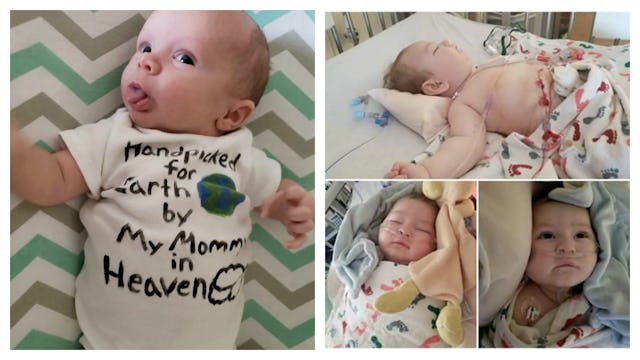These Are The Babies Saved By Donor Breast Milk

Over the last few years, we’ve been hearing about the maternal mortality crisis, as apparent in the near-death experiences of mothers in the United States. As a nation, we seem to have come to a consensus: our most vulnerable populations are at risk for having their consent, autonomy, and ultimately their lives stolen from them during labor.
However, the public discourse often stops there. We have had minimal discussions on how to reduce these deaths and the equally important question of the long-term effects on the children. We have heard several stories of mothers taken from us way too soon, but we overlooked the extended consequences the children face post-birth because we don’t typically get to view the issue from the perspective of a child having just lost their mother.
Earlier this year, Cayden Manley became the image of the maternal mortality crisis. Cayden’s parents, Jessica and Chris Manley, were ecstatic when their five-year journey of trying to conceive gave them their miracle child. Unfortunately, this journey was cut short when Jessica died of a pulmonary embolism in her lung only one day after giving birth. She hadn’t even left the hospital yet.
After Jessica’s death, Chris made it his mission to honor his wife by providing Cayden with the “liquid gold” she always imagined for him. And when his story went public, the community leaped at the opportunity to help in the form of donor milk.
His dedication to her vision for her child warmed my heart. While different, it reminded me of my own story as a new mom with a son in the NICU. My son depended on donor milk for survival. Donor milk brings the benefits of breastmilk to those who are struggling or unable to produce the resource on their own. And then I began to wonder, why is there so little awareness around donor milk as a resource for struggling mother and newborns?
The hard days..
Those of us who have had NICU children know it’s lifesaving potential, but how can we get this discussion to the larger parenting community? I often imagine the stress we could alleviate from new parents if we increase knowledge, access, and affordability of this resource.
We often discuss formula as a lifesaver, and for some, that may be true. But what happens in situations where the water isn’t of reasonable drinking quality or during natural disasters when water may be completely inaccessible. Breastmilk has the potential to act as an MRE (meals ready to eat) for infants in crisis.
For me, donor milk existed as a reminder that other mothers cared enough to support me during a tough time. As my NICU baby quickly approaches three years old, there isn’t a day that passes that I’m not grateful for the forward-thinking mothers who made the sacrifice of pumping a few extra hours so my baby could eat.
Discussions with friends have revealed to me that my struggles weren’t uncommon, but my access to donor milk was. Naturally, I faced questions about the safety of sharing milk for those who aren’t in the hospital like I was and why milk is so expensive on the “milk black market.”
I couldn’t answer all of those questions, but I was glad to hear them. As with everything else, it’s important to consider the obstacles, risk factors, and benefits from any resource. Chris and Cayden have enough milk, but pages like Human Milk 4 Human Babies are still changing lives one donation at a time.
It’s equally essential for us to consider the barriers our society has put in place that makes it difficult for women to breastfeed in the first place. Some are surface-level like stigma and hospital support. Others are more complex and indicative of systemic failures.
Our maternity/ paternity leave policies are often non-existent or vastly ignore the amount of time it takes to bond with our babies or to establish a milk supply. Similarly, our cost of living forces our most vulnerable parents to return to work as early as two-weeks postpartum. This isn’t healthy for moms and puts them at substantial risk for long-term postpartum complications.
Lastly, we need to increase concern for mental health in this nation. Pregnancy, birth, and parenthood are all emotionally taxing. Without adequate channels for parents to find assistance, parents will be preoccupied with making it from day to day instead of nurturing their children.
Donor milk has the potential to do so much. But that will not be successful unless we work harder to disrupt the anti-parent structure of our society.
And while we’re at it, we have to stop moms from dying.
This article was originally published on